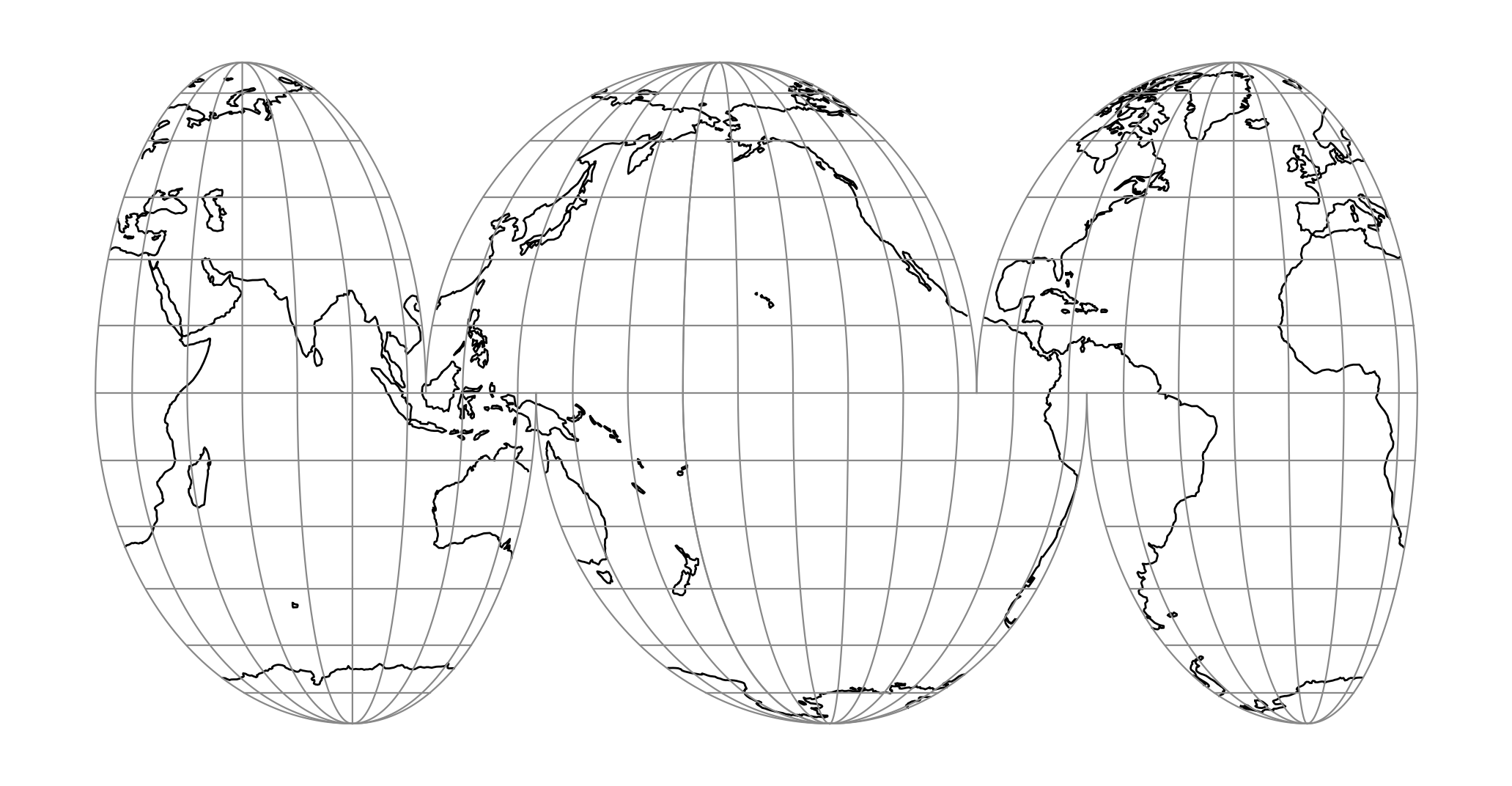Interrupted Mollweide (Oceanic View)¶
Classification |
Pseudocylindrical |
Available forms |
Forward and inverse, spherical projection |
Defined area |
Global |
Alias |
imoll_o |
Domain |
2D |
Input type |
Geodetic coordinates |
Output type |
Projected coordinates |

proj-string: +proj=imoll_o +lon_0=-160¶
The Interrupted Mollweide (Oceanic View) projection is an equal-area projection
intended for making maps of the Earth's oceans. The projection is comprised of
six separate Mollweide (homolographic) projection regions. In contrast with
the Interrupted Goode Homolosine (Oceanic View) projection, there is no
transition latitude, which gives greater continuity at the cost of greater
equatorial distortion. The lobes in this projection are chosen to emphasize the
ocean area of the Earth when used with a central longitude of -160
degrees. This projection was first published in 1919 by J. P. Goode
[Goode1919].
Parameters¶
Note
All parameters are optional for the projection. A value of +lon_0=-160 is recommended.
- +lon_0=<value>¶
Central meridian/longitude of natural origin, longitude of origin or longitude of false origin (naming and meaning depend on the projection method).
Defaults to 0.0.
Note
The default convention is to interpret this value as decimal degrees. To specify radians instead, follow the value with the "r" character.
Example: +lon_0=1.570796r
See Projection Units for more information.
- +R=<value>¶
Radius of the sphere, given in meters. If used in conjunction with
+ellps,+Rtakes precedence.See Ellipsoid size parameters for more information.
- +x_0=<value>¶
False easting, easting at false origin or easting at projection centre (naming and meaning depend on the projection method). Always in meters.
Defaults to 0.0.
- +y_0=<value>¶
False northing, northing at false origin or northing at projection centre (naming and meaning depend on the projection method). Always in meters.
Defaults to 0.0.